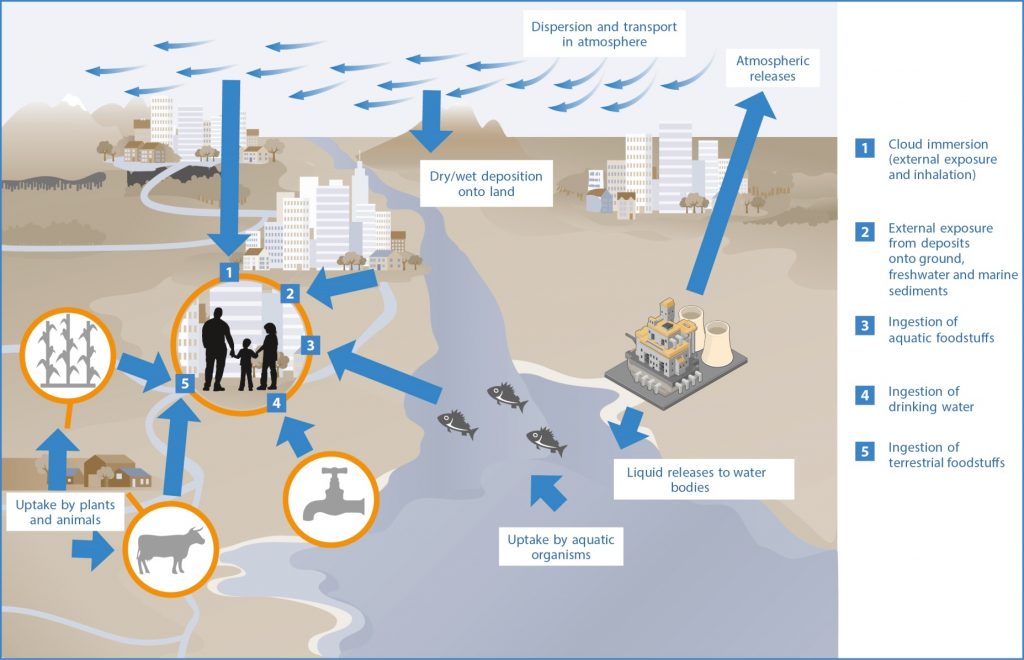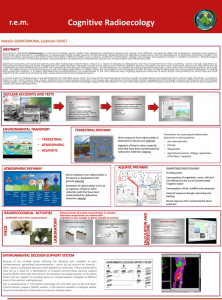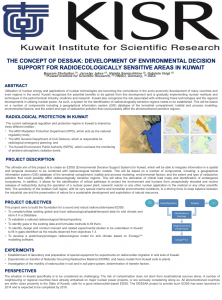Radioecology and RadCon’s Services
Radioecology is the study of the effects of radiation and radioactive substances on ecological communities. It is a highly multidisciplinary scientific field which looks at environmental radioactivity, whether natural or man-made, and its effects on people and the natural environment. It deals with radioactivity as a stressor requiring risk assessment, but also as a tracer of biogeochemical and ecological processes.
More information can for example be found in an interview with Francois Bréchignac, President of the International Union on Radioecology (http://www.iur-uir.org/en/)
Radioecological Roadmap
Our work in the field involves:
- Identification of relevant pathways
- Determination of important pathways and the elimination of the rest
- Measurements
- Modelling
- Dose assessment
Highlights of our Services in Radioecology
- Experimental radioecology: Support and Development of sampling strategies and measurements
- Environmental modelling
- Environmental Decision Support Systems (EDSS)
- Remediation and restoration
- Statistical methods and data analysis
- Project management

Exposure pathways following discharge of radioactive material to the environment https://www.unscear.org/docs/publications/2016/UNSCEAR_2016_Annex-A.pdf
Consultancy
RadCon can support your activities in radioecology by:
- Providing training and lectures to understanding the radionuclide dispersion and distribution, geochemical and biochemical processes of migration in soil, water, the air, and food chains, and radiation’s effects on humans and ecosystems.
- Supporting and coordinating radioecological research activities.
- Aiding the assessment of site-specific past, present, and future radiation levels in terrestrial environments, and the adoption of suitable and cost-efficient remediation strategies after releases of radionuclides into the environment.
- Helping to identify available radioecological models and environmental decision support systems for radionuclide transfer and impact assessment.
- Formulating sampling strategies and developing sampling procedures (Find more in our poster on Cognitive Radioecology:
- Providing proper processes of sample preparation before measurement.
- Advising on measurement techniques, interpretation of results and the reliability of outcomes.
- Contributing to experimental work and support for the establishment of radiological analytical labs.
- Establishing an environmental radionuclide laboratory and the identification and purchase of special equipment needed for experiments on radionuclide migration in the soils typical of the region.
- Conducting experiments on transfer from soils to plants of Naturally Occurring Radioactive Material (NORM), other radionuclides, and heavy metals.
- Investigating the mobility of radionuclides in soil and in soil-plant systems and the determination of transfer factors. (See an example of our work for the Kuwait Institute for Scientific Research):
- Creating an EDSS (Environmental Decision Support System) to integrate information in a spatial and temporal resolution and be combined with radioecological transfer models.
The EDSS will be based on several components, including Geographical information System (GIS), habitat and process modelling, and environmental and human factors. The results are critical load maps and the identification of endangered ecosystems and radioecologically sensitive regions.
An EDSS allows the identification of critical pathways to protect the environment and humans from radiation arising from radioactivity releases during the operation, decommissioning and waste management of a nuclear facility or any other nuclear application in other scientific fields, e.g. medicine and agriculture.
RadCon also offers advice on statistical methods and assistance with practical aspects of data analysis.

